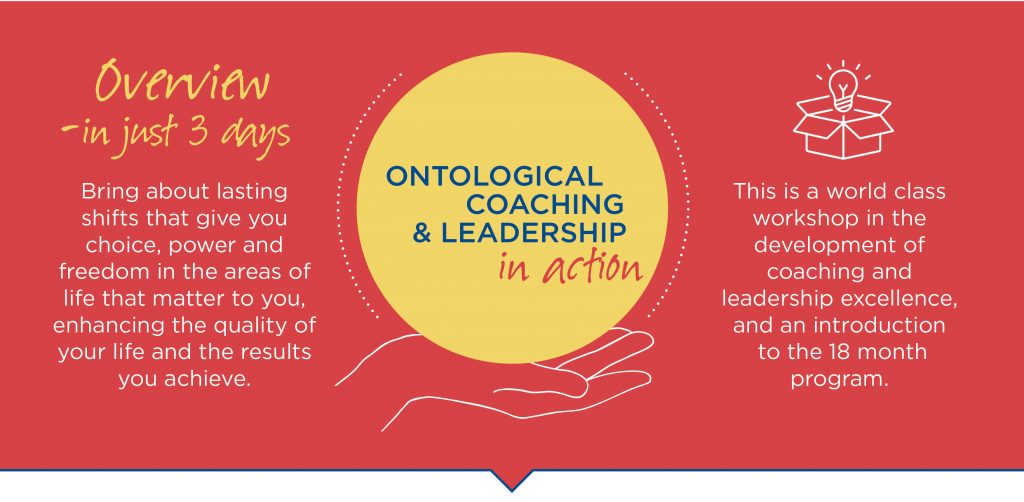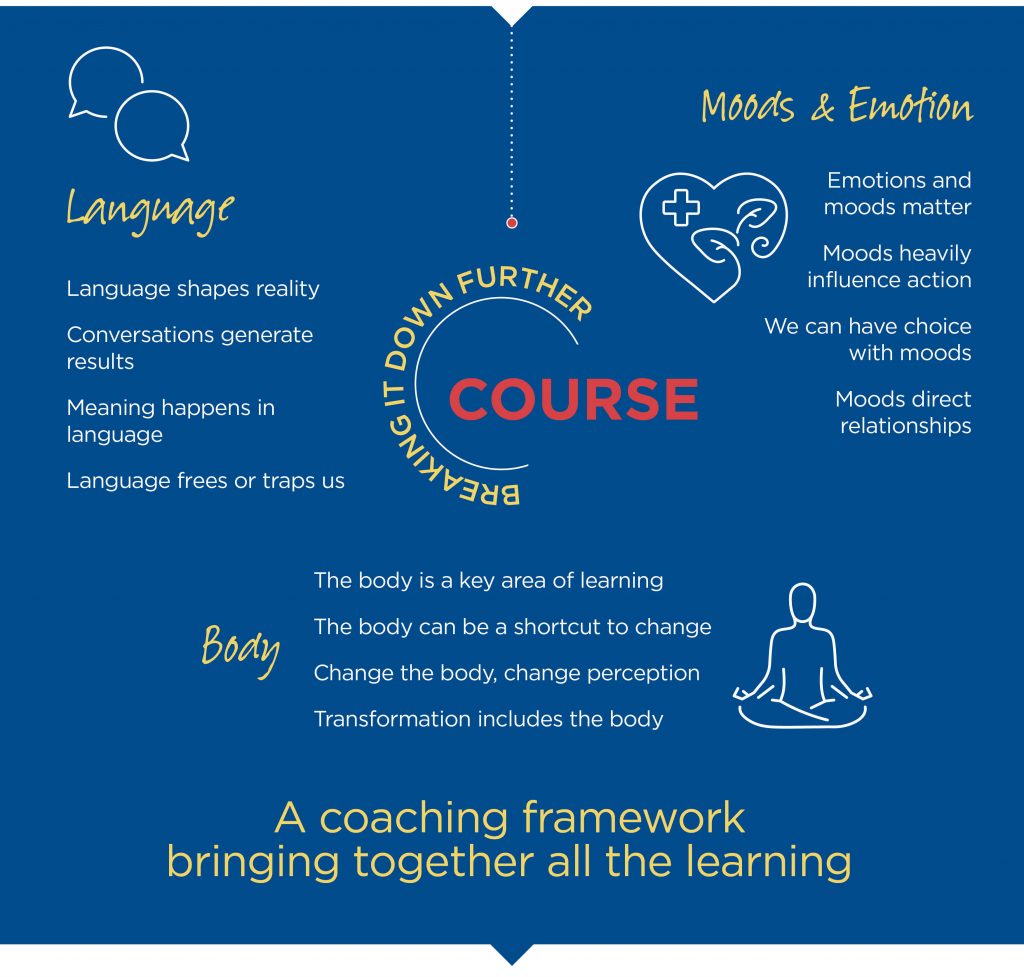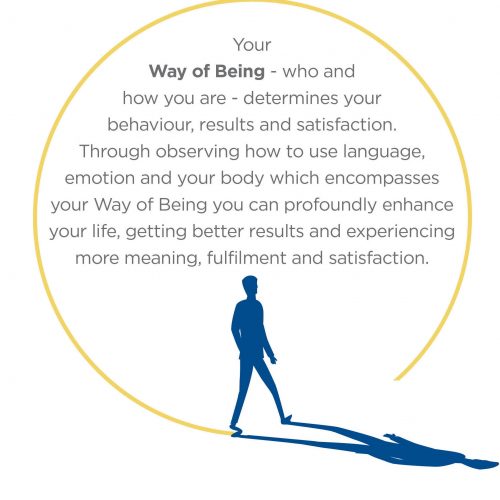- Manager and Leader who knows you could be more effective and feel stuck
- A Manager and Leader who has been promoted and wants to scale up
- An existing coach who wants to develop your capacity further
- Considering coaching as a vocation
- An Organisational consultant who would like to add even more value
- An individual interested in personal development
Ontological Coaching and Leadership in Action Program
A world class workshop in the development of coaching and leadership excellence
2026 Workshops
Workshop Overview



PRINCIPLES AND CONCEPTUAL FRAMEWORK OF ONTOLOGICAL COACHING

LANGUAGE
Patterns of speech known as Linguistic actions – they shape reality and can be used effectively in coaching and leadership to shift behaviour.
Listening – apply a different and deeper approach to the role of listening and be more influential as a result.

MOODS
Moods and Emotions – understand their essential role in coaching. leading and life for deep and sustainable change
Shift the ways moods and emotions impact on communication, behaviour and performance

BODY
Bring into play the body as a source of learning and change.
Observe and work with the interconnection between basic moods, body posture and language
THIS IS FOR YOU, IF YOU ARE:
What you will learn and be able to do
Use language to create a shift in your own Way of Being as well as those you work with, including:
- Interrupt your habitual listening and be more influential through listening differently
- Distinguish between the Basic Linguistic Acts, which we use all the time, and be able to use them effectively to achieve results and increase your fulfillment
- Experience a self-coaching framework that you can use on a continual basis when you are stuck or would like to grow your capacity.
- Coach people across language, moods and the body – frameworks are offered for each of these key areas of learning.
- Understand how you are as a learner and how you can optimize your learning in all areas of your life.
- Gain an in depth understanding of moods and how you can bring about a change in moods that aren’t so helpful.
- Have a rationale for working with moods and the body that you can share with others, that makes this area of learning accessible and pragmatic.
- Become a more powerful observer by learning about the notion of concerns and breakdowns.

